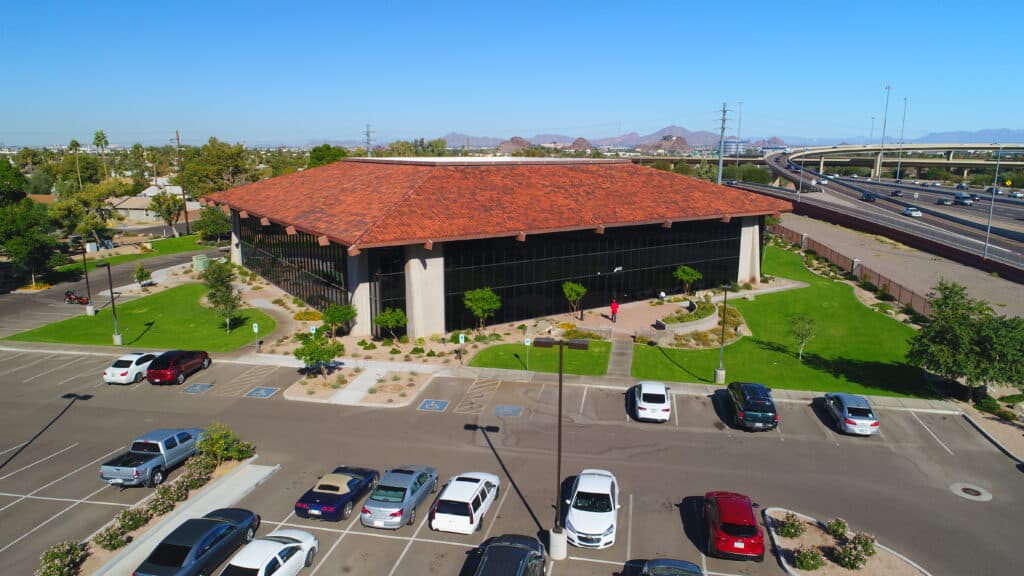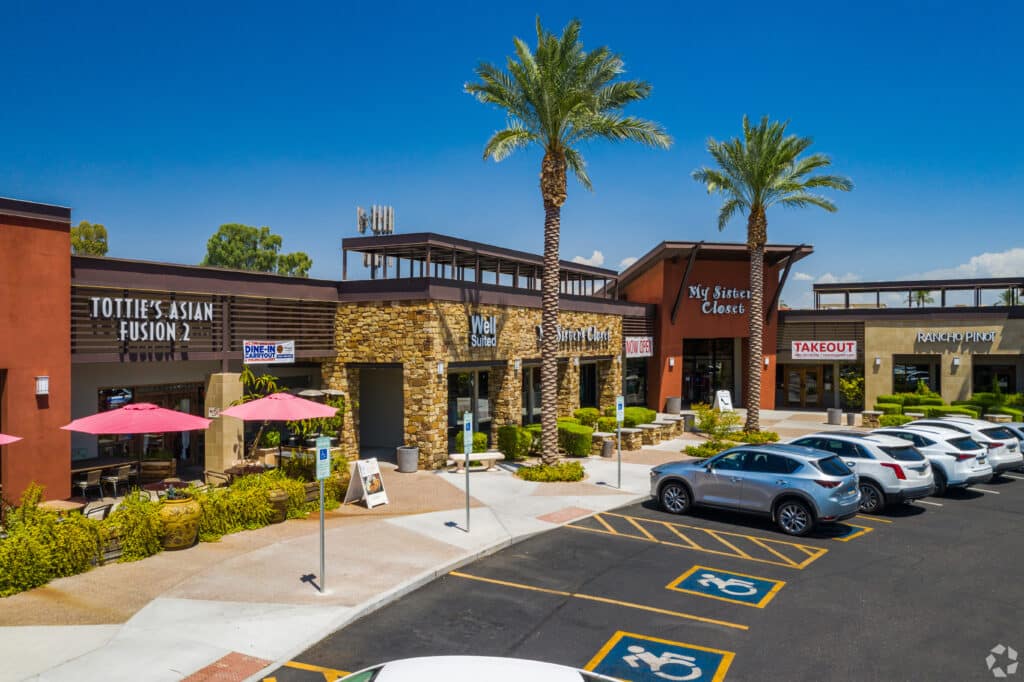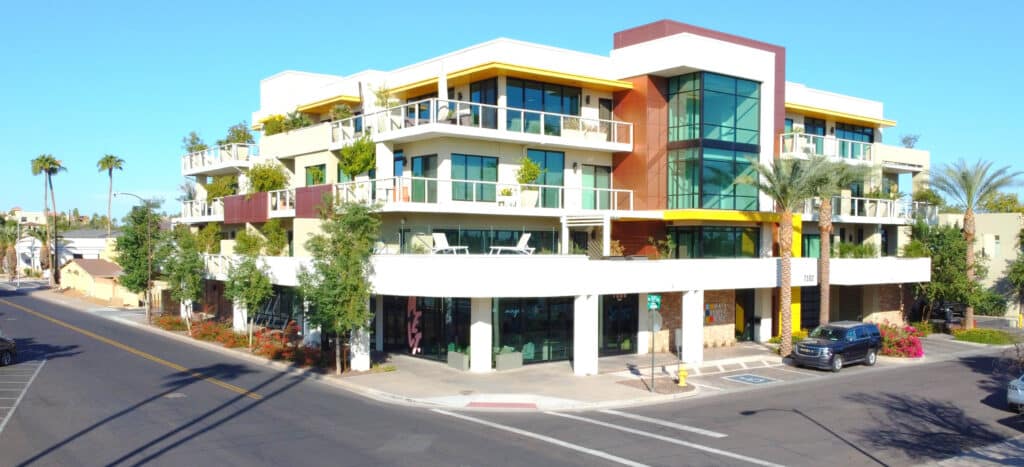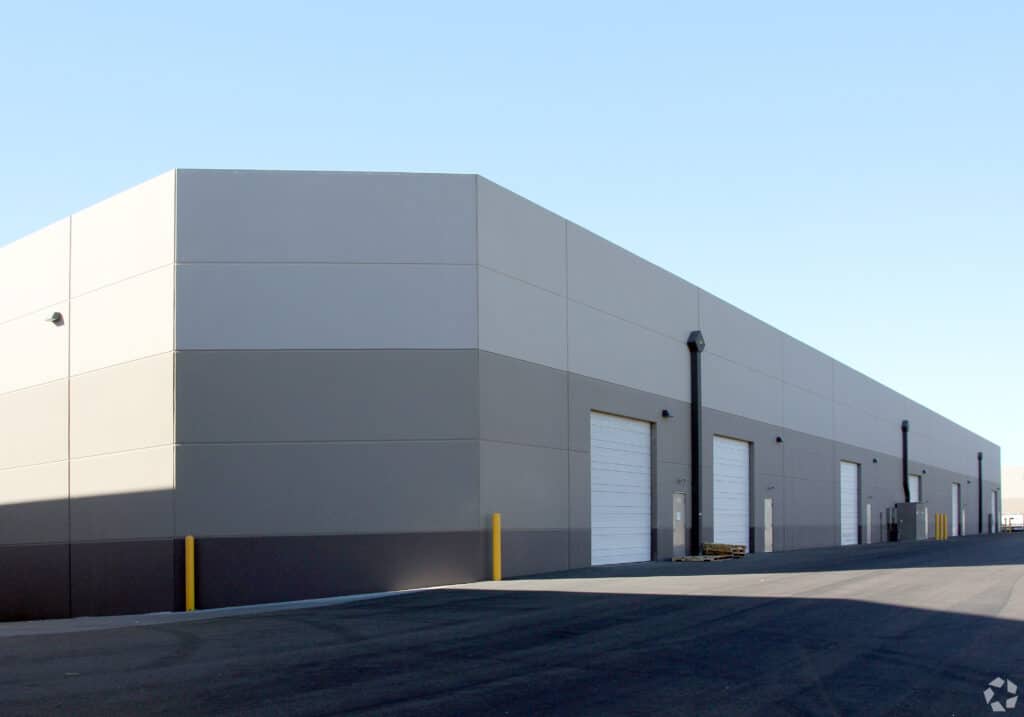What is Commercial Real Estate?
Commercial Real Estate is an industry that specifically focuses on business-related workspaces, as opposed to living spaces. These spaces are primarily used as a workplace or to create revenue flow for the owner of the property. Thus, it is also seen as a popular investment choice because it carries the potential to generate profit from rental incomes.
At one point or another, all business owners must make a decision regarding the best option for their business’s commercial real estate needs. Throughout this post, we’ll cover the four primary types of commercial real estate, the differences between the types of commercial leases, and the benefits of entrusting a commercial real estate brokerage to help guide you through this process.
4 Primary Commercial Types:
- Office
- Retail
- Multifamily
- Industrial
Besides the four primary types of commercial spaces, there are also three different classes a building can fall under. These properties are broken up into class A, class B, and class C assets. Factors such as stature, age, and location will inevitably determine which class each building is categorized as.
Buildings that fall under class A are typically large, high-quality properties and are full of updated amenities. Buildings in class B are typically a bit older and more commonly seen throughout the suburbs. While buildings in class C are typically older, in need of updating and are sometimes found in less desirable locations.
Office:
One of the most common commercial properties you come across are office buildings. These types of buildings house a variety of businesses that we all visit frequently. Office properties can range from single tenants to multiple tenants and are found all throughout suburban and urban areas.
Typically, you will see office property pricing higher in class A and lower in class C. The unique needs of your business will determine what type of office space would best suit you. These properties include:
- Medical Offices
- Corporate Offices
- Garden-Style Offices

Retail:
A retail property houses retailers such as restaurants, banks, soft good retailers and service-based businesses such as hair salons or fitness operations. Retail property can also consist of freestanding structures, strip malls neighborhood and shopping centers. There are many important aspects to consider when searching for a retail space. These factors include space for adequate signage, traffic counts, access, visual appeal, parking, occupancy, distance from nearest competitors and synergy with other businesses in the area. The anchors or big-name tenants that occupy a close by space also contribute to the amount of foot traffic their reputation draws in. Smaller retailers typically like to fill in the spaces between larger anchors with the hope of drawing customers in with their convenience.
There are also cases where a business occupies multiple commercial spaces depending on their business model and specific segments. For example, a restaurant may have one or more retail locations and possibly an office property for its corporate side. Common retail spaces include:
- Freestanding Pad Buildings
- Anchored Centers
- Unanchored Centers
- Regional Malls
- Power Centers

Multifamily:
A property categorized as multifamily includes buildings with five or more residential units and is considered commercial even though this property sounds residential. Its multi-tenancy makes it a popular option as an investment since the landlord receives multiple streams of income. Multifamily properties include commercial assets such as:
- Garden-style Apartments
- Mid/High Rise Apartments
- Workforce/Affordable Housing
- Dormitory/Student Housing
- Assisted/Independent Living

Industrial:
Industrial space is sometimes referred to as “flex space” when there is a larger office or showroom component to it. This type generally includes a variety of warehouse facilities and can be a mix of office and industrial components. Industrial spaces are typically located outside of residential and in specific pockets of urban areas. Businesses that work in distribution may find it convenient to be near interstate highways, railroads and airports in order to create easier access for shipment and deliveries. Since manufacturers usually have specific utility requirements for water, gas and electricity, they can only occupy spaces that fit their unique needs.
It is also common for warehouse properties to contain clear height specifications which makes their property searches even more specific. This specification simply measures the height from the floor to the lowest hanging overhead obstruction. Dock height loading and availability is a deciding variable when searching for an industrial property. Depending on the type of business, an industrial property user may prioritize street level access for drive in convenience or require higher docks for truck deliveries. Lastly, zoning is another big factor when determining the type of business that can operate out of a certain commercial building. Many restrictions can prevent a business from being allowed to occupy a specific space or use the outside yard for needed storage.
If an industrial property is what you are searching for, make sure your advisor is aware of all of your business’s requirements. Typical industrial sites include:
- Showrooms
- Cold/Self-Storage
- Data Centers
- Warehouses
- Manufacturing
- Distribution

Tenant & Landlord Representation:
When you begin searching for a commercial space to lease, it is vital to surround yourself with a knowledgeable team of experts. A commercial brokerage can help with site selection, lease options, negotiations, and offer a variety of representation services.
A tenant representation broker is there to assist you throughout the entire leasing process. This service is for business owners who are looking to lease a commercial space they can operate their business out of. Besides facilitating the transaction between a tenant and landlord, a tenant representation broker also helps tenants find the right commercial space and secure it with favorable terms.
A landlord representation broker is responsible for attracting and retaining tenants through complex marketing strategies. This service is for property owners who are looking for tenants to occupy their building. Since they represent the landlord, they strive to get the highest lease rates with favorable terms for the building’s owner.
As you continue your commercial real estate search, make sure to check out our team of advisors who can help guide you throughout this process.
Commercial Lease Types:
When leasing, there are different types of commercial leases which each require a different level of responsibility from the tenant and landlord. Some of the main lease types include:
-A gross/full-service lease, where the tenant is typically only required to pay the rent while the landlord pays most expenses including utilities, janitorial services, and main building costs such as property taxes, insurance and common area maintenance.
-In a modified gross lease, the tenant is required to pay the rent and split some of the property’s operating expenses, such as utilities and janitorial services, with the landlord.
-A triple-net lease requires the tenant to pay property taxes, insurance and common area maintenance. There are also leases such as single-net and double-net where there is less responsibility for the tenant.
Although these types of leases have relatively standard structures, each lease may have some variances on the terms and responsibilities of the tenant.
Buyer & Seller Representation:
Another common service provided by a commercial brokerage is buyer and seller representation. In this case, a commercial broker will help to facilitate a seamless transaction, from start to finish.
A buyer representation broker assists clients in finding suitable commercial property based on their needs. A commercial broker is there to represent the buyer of the transaction by negotiating the best possible terms. Many times, commercial buyers are looking to invest and may not necessarily occupy the building themselves. If this is the case, a commercial broker can also assist with commercial real estate asset management.
A seller representation broker assists commercial property owners with the sale of their building. It is the job of the commercial broker to maximize a building’s exposure by using marketing strategies to draw interest from buyers and other brokers. A commercial broker is there to represent and guide the seller of a property by facilitating the best possible deal.
Property Management:
Maintaining commercial real estate requires a lot of attention and continuous management. Having a commercial property manager will help to maintain the property while improving tenant retention, overseeing finances, and property upkeep. Employing a diligent property manager can help to minimize vacancies and tenant turnover which can be costly for owners of commercial properties.
Mode Commercial Property Management is a trusted property management firm who serves properties throughout Arizona. They are located in Old Town Scottsdale and serve the entire Phoenix metro. They can help with any of your property and HVAC needs. Some of the services you can expect to receive include:
- Full-Service Accounting and Reporting, 24/7
- On call/In-house Building Engineers
- HVAC, Maintenance and Day Porters
- Preventative Maintenance Program
- Tenant Renewal and Expansion
Having a general understanding of commercial real estate is a good place to start before beginning your search. Whether you’re interested in purchasing, selling, or leasing commercial real estate, a professional brokerage will help guide you every step of the way.
Share this Post:
Date Posted: July 19, 2022





